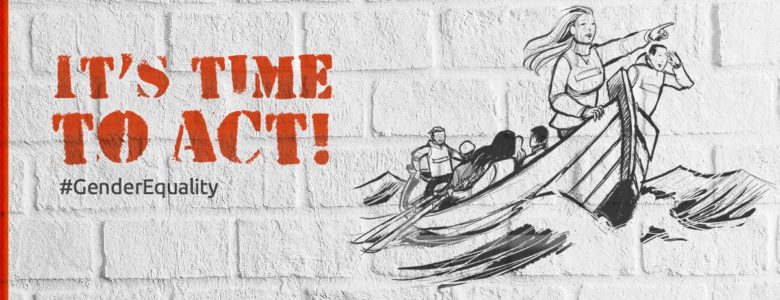
We the women
>>We the women
Why does DiEM25 support the strike on 8 March?
Our movement proudly declares itself a feminist movement. As such, we understand that there cannot be democracy – based on justice, tolerance, and fairness – without gender equality.
We, the women, will go to the strike to condemn the violence to which we are subjected. It is not only the chilling figures of abuse, assault, and murder across Europe, but also the injustice of the payroll gap, the imposition of gender roles, the obligation of caretaking, the non-realization of our legitimate aspirations as citizens with full rights and equal opportunities.
We, the women, who are united by a strong and deep Europeanist feeling, know that if we succeed in the democratization of our spaces, we will achieve a more just and egalitarian society.
We, the women, have worked hard during our long common history, although our efforts have often not been justly recognised. We know that this failure of recognition flows from an androcentric world in which our role has been relegated to the private sphere and our functions limited to reproduction and care-taking tasks. Together we have faced the barbarity that blighted Europe during the World Wars spreading fascism, xenophobia, racism and ultranationalism everywhere. It is impossible to cite all the women that made possible the European dream. Simone Veil, first woman to be president of the organism or Sofia Corradi, ideologue of the Erasmus project. They paved the paths that others continue to follow.
Since the first feminist fights, aimed towards the consecution of the women vote, we have been forced to fight for that which belongs to us by right. Our social commitment to democratic values compels us to take a stance and position ourselves with all of those demands that aim to achieve the objectives for which we were born as a movement. This is our way of expressing ourselves.
We show our solidarity with the women around the world, with a particular emphasis on those who have had no option but to abandon their homes in the midst of conflict, and who now suffer twofold as women and refugees. These women and their daughters arrive at our doorstep, but a de-humanized Europe severs their lives by barring their entry.
We will go to the strike on the 8 March. We will go together to shout with all our strength that we are here, that we must be counted on to build a Europe that is egalitarian and without borders, and that without us nothing will be possible, because if we stop, the world stops.
We will change Europe, but it will be done … with the women, or it will not happen.
Marina is a member of DSC-Galicia.


The gendered cost of austerity
We talk a lot about austerity in DiEM25. We publish articles condemning austerity, we keep it at the heart of our manifesto, and we challenge it in our European New Deal. We march against it, hold seminars critiquing it and vote for politicians who oppose it.
And yet, we appear to be missing a fundamental piece of the puzzle: Austerity is also a feminist issue. Following the 2008 financial crisis, many European governments imposed austerity measures, either obligated to do so by the ‘troika’, or by choice, often for reasons of ideology. The catastrophic impacts of these measures are well-documented, but what is sometimes absent from such analysis is how austerity impacts men and women in very different ways and to very different extents.
Triple jeopardy
Women are affected by the so-called ‘triple jeopardy’ of austerity. First, women tend to be more dependent on the welfare state than men, owing to pre-existing economic disadvantage. Benefits, including tax credits, make up a larger proportion of women’s income, owing, in part, to their role (usually) as a family’s primary caregiver.
Second, across Europe, women constitute between 60% and 70% of the public sector workforce, making them more adversely affected by public sector pay freezes and lay-offs.
And third, where public services are cut, women typically pick up the slack, especially with regard to care and domestic work. Between 2010 and 2015, social care in the UK was cut by 23% and childcare by almost 20%. In cases where women do compensate for these cuts, their access to paid work is reduced, making them more vulnerable to financial insecurity and poverty.
In fact, in the UK, it has been estimated that 80% of the burden of budget cuts falls on women, and especially on those women who can least afford it. By 2020-21, women in the UK will have seen, on average, a 2.5% reduction in net income (compared with 1.3% for men), and an Asian woman in the poorest third of the population will lose the equivalent of 11.5% of her net income (a staggering 2,320€).
There are other painful connections between gender and austerity. In 2013, the International Labour Conference observed the ‘nullifying [of] the binding nature of collective agreements’ in Greece. Those who are most harmed by such a nullification are those in precarious employment (temporary or part-time work), who are, again, invariably women. Meanwhile, income tax cuts and reductions in corporation tax favour higher earners – usually men – while increases in VAT hit women and poorer people harder as a greater proportion of their income is spent on consumption.
Austerity as a reflection of gender bias
Austerity is a moral issue because it erodes efforts to challenge gender inequality, to which all EU states are legally committed. But beyond the morals, austerity is just bad policymaking.
The LSE Professor, Diane Perrons notes that ‘the implicit assumption that economic policies are purely aimed at creating wealth, while social policies, including gender policies, are only redistributive, needs to be challenged.’
When countries do spend in times of crisis, they usually invest in physical infrastructure projects (including workers’ wages) as this spending is permitted to exceed the Stability and Growth Pact (SGP) public debt and deficit conditions. Public sector spending, however, is considered part of ‘current expenditure’ and is therefore subject to the SGP conditions. This not only overlooks the fact that investing in social infrastructure produces long-term benefits such as a better-educated and healthier workforce, it demonstrates the inherent gender bias in economic theory.
In actual fact, investment in social care generates higher economic and social gains than investment in physical infrastructure. It has been estimated that investing 2% of GDP in the care industry would generate twice as many jobs compared with an equivalent investment in construction. This would result in nearly a million new jobs in Italy, just over two million in Germany and 1.5 million in the UK. Add to this the fact that professional care is a low-carbon emission industry, supporting the transition to a low-carbon economy, and it becomes clear that current economic practice is limited by prejudices about the ‘value’ of different types of work.
So when we want to talk about austerity (and we do!), we cannot view it as an abuse with blanket impacts. Challenging it requires acknowledgement of the gendered nature of austerity, as well as the development of policies that recognise the importance of social investment for society as a whole.
Kate is a member of DiEM25’s DSC Gender Equity 1. The thematic DSC on Gender Equity has recently been established to address issues relating to the care economy, women’s rights in Europe and gender balance within DiEM25 at all levels. If you would like to be involved in the thematic DSC, or for more information, please send us an e-mail.
Artwork: Wilfred Hildonen (DiEM25 Communications)
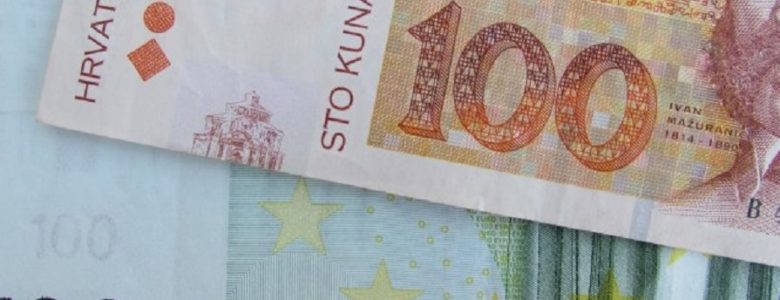
On Croatia’s Entry to the Eurozone
Croatia joined the European Union as its 28th member state on July 1, 2013. Today, there is a heated — but rather one-sided — debate on whether it should join the Eurozone.
Our position is clear: Croatia should not join the Eurozone. Not yet.
Our case is simple: the promise of euro-led growth is a false one. Entry to the EZ would only keep Croatia at Europe’s periphery, but with diminished control over its economic future. Croatia should therefore reject the invitation to join the EZ until its decisions are meaningfully democratic. DiEM25 is dedicated to delivering these democratic reforms.
Below we present both: the arguments making the case for Croatia joining the European single currency — from the Croatian National Bank to the ruling Croatian Democratic Union (HDZ) and its opposition, the Social Democratic Party (SDP) — as collected by DiEM25’s local group in Rijeka (DSC-Rijeka), as well as the arguments against it, as developed by Croatian DiEM25 members and leading DiEM25 economists.
- If Croatia enters the Eurozone… “the Euro will cause credit ratings to rise”, “simpler refinancing of debts”, “lower borrowing rates”
In other words, debt will rise much faster under the euro, as more German capital will flow into the country from the Frankfurt banks. A looming disaster portrayed as a lure! Of course, they will say that cheaper investment funding is always a good thing (“Easier access to capital for entrepreneurs” – “Rise in foreign investment”). But will the capital inflows go into real investment? Or will they simply bid up asset prices, while German companies continue to strip down what is left of the country’s industry? The latter of course. Just like in Spain, Greece, Ireland etc.
- If Croatia enters the Eurozone… “Credit ratings will rise”
Well, this is not what happened to those hit in the crisis boosted by EMU, is it? Instead, ratings fell significantly, credit spreads rose — in some cases astronomically — and liquidity available for refinancing dried up. But traders in the Eurozone investment banks never let a good crisis go to waste: they profited handsomely, deepening the crisis in the process.
Here is the bottom line: without the institutions to make the EZ work for real, none of these arguments are more than standard EMU marketing 101 — debunked long ago.
- If Croatia enters the Eurozone, it will reach… “Financial and political stability” – “Economic openness” – “Growth of export” – “Better integration of Croatian economy within the EU” – “The Euro will boost trade with the eurozone countries by eliminating exchange rate risk”
This is totally unfounded. If you look at Poland, Hungary and the Czech Republic — other countries with the strongest foreign direct investment (FDI) and deepest integration with German, Dutch, French and Austrian industry over the last 20 years — you will see that they all retained their currency! In contrast, the countries that entered the euro (Portugal, Greece, even Slovakia) had far less FDI and next to no integration with central European industry. In other words, entering the euro was pointless from the perspective of FDI, integration, and even capital accumulation.
- If Croatia enters the Eurozone, this will have with prices: “Benefit of national monetary policy is limited anyway because of a high level of euroisation and of indebtedness in all sectors” – “Prices are equal to those of Germany, Austria etc so no significant rise in prices”
If indebtedness is a problem, and too many debts are already in euros, the thing to do is to reduce the % of debt that is euro-denominated – not make it 100%! Yes, prices may not be different from Germany’s etc. BUT,
(1) Prices will almost certainly rise further if the euro is adopted (as local oligopolies take advantage of the redenomination to forge greater collusion between their members), and
(2) If wages become euro-denominated, any future recession (and, believe me, it will come) will not be possible to absorb through higher inflation and a devaluation of the currency – it will, instead, give rise to nominal wage reductions, which turn a recession into a depression.
- If Croatia enters the Eurozone, we will have… “Growth in tourism”
Why? Does anyone really think that more tourists will come because they do not have to change money— at a time when everyone pays by credit card, anyway? The opposite will hold: The rise in prices (see above) will, if anything, reduce tourist arrivals!
- If Croatia enters the Eurozone, it will become part of… “Eurozone as a guarantor of financial stability”?
Really? This simply does not square with recent history. As a matter of fact, the EZ and concomitant financial deregulation played a major role in transmitting the US credit crisis to the eurozone and compounding it by bidding up European asset prices and boosting indebtedness. To take just one example, Spain went into the EZ with negative real interest rate, causing household indebtedness to soar while the construction sector boomed into a bubble. So there are very serious arguments for saying that EZ membership has been a destabilising factor, especially for countries that came into it with a significant relative interest rate. The debt crisis started to build up from that point, triggering the banking crisis and — in turn — the sovereign crisis.
- If Croatia enters the Eurozone… “it will escape the EU periphery in a political sense”
Just like Greece and Portugal!
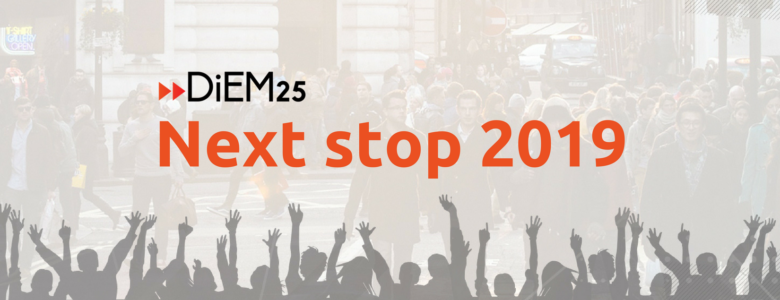
DiEM25 and European progressive forces gather in Naples to launch historic transnational list
On March 10, 2018 we are starting the path towards building the first pan-European, transnational list. And our immediate aim is to compete in the May 2019 European elections on the strength of a single Manifesto mapping out a clear path to a democratic, ecological, egalitarian and ambitious Europe.
The next few years will determine whether the current and future generations will look at Europe as a source of torpor or as a source of promise. We, the Democracy in Europe Movement (DiEM25), believe that this is our generation’s moment to seize the day and give the people of Europe a real alternative to the Establishment and the rising ‘nationalist international’; a progressive path to save Europe from itself. The alternative to “There Is No Alternative”.
That’s why this weekend we’ll be landing in Naples with the first members of what will constitute Europe’s first-ever transnational list to set that alternative in motion – the initial steps toward getting back our cities, our regions, our countries, our environment, our Europe.
“To do this effectively, however”, underlines DiEM25 co-founder Yanis Varoufakis, “we need first to take back our Europe. We understand that the only way to bring about change is by forming a broad, democratic, radical Europeanist Single Transnational List, based on a single Manifesto that offers all Europeans a common Green New Deal – and a path toward a democratic European Union. This is why we are gathering in Naples: To forge precisely that. And we hope many more will join us!”
Among us at the dawn of in this landmark initiative, a line-up of progressive political actors, intellectuals and grassroots activists from every corner of Europe, including France’s former presidential candidate Benoît Hamon and his new party Génération-s, Mayor of Naples Luigi de Magistris, representatives from young left-wing Polish political party Razem, Denmark’s The Alternative, Portugal’s LIVRE, and many more.
We gather in Naples convinced that the solution to our regions’ and countries’ crises must be European. We are ready to jointly, and with respect to democratic processes, develop and activate a combined pan-European, national and municipal strategy to tackle our common crises: from climate change to migration and refugees, from tax avoidance to private and public debt.
None of these solutions can emerge from Europe’s current technocracy and the business-as-usual attitudes of its establishment. Nor, can they come from the disintegrationists proposing a return to the nation-state. Thus, against both, we aim at becoming the credible, coherent, radical alternative in Europe’s Parliament.
In the weeks and months ahead, we’ll continue to reach out and extend invitations to all other European progressive forces who may be ready to join our historic bid to transform Europe.
The train has left the station, slowly, and with its doors wide open!
###
– On Saturday, March 10 the first collective meeting among the founding members of Europe’s first transnational political list will take place at Domus Ars. The initial deliberations taking place during this ground-breaking gathering aim to outline the main lines of the transnational initiative’s framework and establish a provisional governing council. The minutes from these discussions will be made public online.
– Following the day-long deliberations, delegates of all political forces gathered in Naples will hold a joint press conference, where they will comment on the outcome of the meetings and present a jointly-signed Open Call to Europe’s progressives to join this initiative.
– On Sunday, March 11 we will hold an Open Assembly with our members and activists, as well as with social movements and grassroots networks.
Schedule
Preliminary Council Meeting
- When: Saturday, March 10 | 11am – 5.15pm.
- Where: Domus Ars, Via Santa Chiara, 10.
- Participants: Alternativet (Denmark), Bündnis – DiEM25 (Germany), DeMA (Italy), DiEM25, Génération-s (France), LIVRE (Portugal), Razem (Poland).
- Observers: DEMOS (Romania), DiB (Germany), European Green Party, European Party of the Left, Levica (Slovenia), Nova ljevica and Zagreb Je NAŠ! (Croatia), PCF (France).
Press Conference
- When: Saturday, March 10 | 6pm.
- Where: Palazzo Venezia, Via Benedetto Croce 19.
Open Assembly of members, social movements and grassroots activists
- When: Sunday, March 11 | 11am – 1pm.
- Where: Domus Ars, Via Santa Chiara, 10.
- Participants: All welcome!
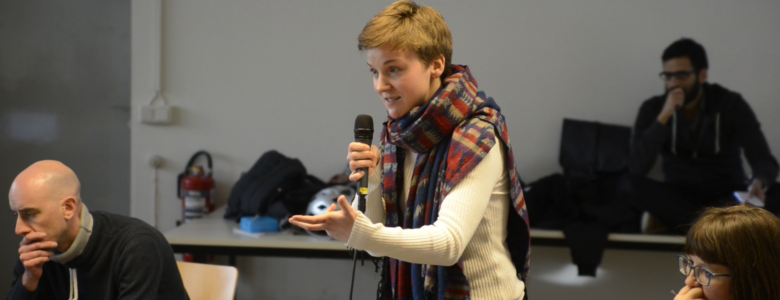
For The Times They Are A-Changing
In recent weeks, several DiEMers have asked me: “Elisa, why are there so few women in DiEM25?”
I tend to start stammering. I am a woman, so I should know… Think Elisa!
But neither is there a singular explanation to this question, nor do I have the interpretational sovereignty to tell. Having been an active member of DiEM25 for the last year and a half, I have come up with a bunch of explanations through the observation of our exterior and interior communication, our prioritization of topics and agenda, our language, our actions or lack of actions, meritocracy and “society”, but most above all through my personal experience – one could say through my embodied experience. My explanations stem from this experience and my background in social anthropology. They are, therefore, subjective.
DiEM25 was born in Berlin at the Volksbühne two years ago, and we returned there last May. At that event, I was involved in a workshop on “Gender” for which we had conducted an internal survey trying to find out about the gender balance in our DSC structures. My casual observation was indeed confirmed by the numbers: 80 percent male, and just 20 percent female.
Of course, we — my comrade Roberta and I —were keenly aware of the limits of such an approach, which could reproduce and reinforce . We both strongly believe that diversity is immensely valuable, but that it is not easily captured in numbers and figures.
At the same time, these remain powerful categories, organizing our economy, our politics, and our culture. As a movement, we must be attentive to these metrics and the ways they inform our work.
Since that last meeting at the Volksbühne, something has changed. The lack of women in DiEM25 has become very obvious. We openly discuss it, and strategies for redressing this imbalance have become part of our agenda – and perhaps more importantly, a part of our collective awareness. Last month, for the second anniversary celebrations in Berlin we experimented with facilitators in every workshop to ensure the possibility of equal participation for all. This is a start, but concern for diversity and gender balance must suffuse our political practice and our policy.
More specifically, we need a feminist perspective on care in the European New Deal, just as we need sensibility in our culture of discussion. In our work on labour, we need to consider the extreme inequalities associated with gender, just as we need to create the space in our discussions for the feminist voice to speak. We need to establish party wings while ensuring that the movement takes the lead. We need these dialectics in our struggle for more democracy in Europe (and beyond). And we must centre the women’s struggle along the way.
Part of that process will involve us seeking out partners beyond the movement. In February, DSC Berlin provided a platform that gave me the chance to moderate a talk with Meral Çiçek, a great speaker and true intellectual from South Kurdistan. In the course of my personal journey at DiEM25, I have established an open dialogue with members of the Kurdish freedom movement, especially the Kurdish women’s movement. So when Meral came to speak, it was a very special moment. And I could tell, looking into our group, that my comrades felt the same.
We must cultivate this connection far and wide. Instead of intellectualizing the problem of diverse participation and action, we could send out invitations, and thereby turn around what David Graber calls the “lopsided structures of the imagination”. Lopsided structures of the imagination are created under the condition of structural inequality and refer to the phenomena that the oppressed always need to perform more interpretive labour as opposed to their oppressors. If you want to know why and how you are being oppressed, you need to imagine the logic of oppression. In turn, ruling classes usually don´t perform this interpretive labour – on the contrary.1
My latest experiences in and with DiEM25 have proven that the times they are a-changing. That gives me a lot of hope for our future. Or to let Meral speak: “the revolution is not a moment, it´s a process”.
Carpe DiEM!
[1] I don´t mean the actual beating-you-with-a-stick type of oppressor, rather a structural version.
Elisa is a member and volunteer of the DSC Munich.

Election loss, victory of the idea
Last week, we invited you to imagine an election in which a grassroots initiative challenged an establishment under strict media control. Yesterday was the D-Day: the day our policies were tested at the ballot boxes. Preliminary results say Don’t Let Belgrade D(r)own didn’t make it to the City Council, winning 3.5% of the popular vote (some 30 000 votes). But while the final result may not sound impressive, it marks a major victory for movement in the context of Belgrade’s twisted electoral situation.
At a very low turnout of 50.8%, only four lists (out of 24!) made it to the City Council, with the ruling Serbian Progressive Party (SNS) winning 45% of votes, and its coalition partner 6% (total of 51%). Furthermore, only two more lists, one of which is Don’t Let Belgrade D(r)own, gained more than 3% of support (that leaves 18 parties at less than 3%). The sky-high result of the SNS is even more astounding considering the fact that Belgrade is generally known to be their weak point.
To be sure, there were irregularities. Consider the ballot boxes. An independent observer, CRTA, noted that there are 8% of polling places with irregularities that could influence the outcome of the vote. All the while, the City Election Commission (CIC) claims there were no “serious irregularities”, and president Vučić states that these were “the most regular and most transparent elections in the last 20 years”. Some of the irregularities that CRTA mentions are: keeping parallel list of voters in the polling places (explicitly forbidden to safeguard the secrecy of the voting process); people in front of polls taking note of those who went to the ballot boxes (indicating voter fraud); collective voting of underprivileged communities (particularly the Roma people); physical violence against CRTA’s own observers and denial of access to certain polling places.
Unofficially, the list goes on, with the SNS targeting the needy to great effect. In the climate of austerity measures, a ban on employment in the public sector and general pauperization, SNS created a party army with contract jobs that offer no more than 200-300€, but which are obliged to attend party rallies, comment news and posts on the internet, and vote for them in the elections (with the entire family and the obligation to collect up to 30 “secure votes”). Poorer voters — the unemployed, as well as the Roma — receive one-time payments of 20-50€ to vote for SNS. Party soldiers are at the ballot boxes keeping track of their diligence, and instilling fear in already desperate and dependent people.
The key word of this election, therefore, is fear. Fear of the blackmailed people that they would lose their (very modest) livelihood if they did not do their electoral duty. But an equal and opposite fear of what would come next if SNS stays in power. The latter is deployed often by the establishment to advocate for the “lesser evil” narrative against genuine alternatives – such as Don’t Let Belgrade D(r)own.
In this way, they created a self-fulfilling prophecy: that Don’t Let Belgrade D(r)own won’t fare better than 5%, leading to citizens’ reluctance to vote for the Initiative, and maintaining the status quo that politics belongs to the politicians.
When we put all these parameters into the equation, numbers become a bit more relative. Those 3.5% are 30 000 votes for the policies, without fear and without compromise. Furthermore, Don’t Let Belgrade D(r)own was the only citizen-led initiative, and the only one not going as a coalition of multiple parties. It fared far better than most old opposition parties, including the once biggest and most powerful Democratic Party (DS). With very limited resources, virtually no access to media, loose infrastructure and entirely voluntary activist base, the Initiative managed to establish itself as one of the most relevant opposition forces in the city. So while this might not have been an electoral victory, it was a victory of an idea.
What is to come next? For Don’t Let Belgrade D(r)own and DiEM25, the fight continues. We did not start practicing politics for or because of the elections. They are merely one of the places where the political struggle takes place. Just like the following elections in Greece, where ΜέΡΑ25 will have its launch, or those for the European Parliament in 2019. As far as we’re concerned, this is just another Monday. But one when we woke up richer for an invaluable experience, ready to move forward.
Carpe DiEM!
Milena is a member of DiEM25 DSC Belgrade 1.

Is 8 March special?
I look forward to the day when the date 8 March evokes nothing but memories among mostly older people. I hope that may shock you!
Because it shouldn’t. If my wish were to come true, it would mean that a special day on the calendar for women is somehow bizarre, as if we celebrated “Men’s Day”. Let’s remember first that not everyone stresses that the formal title of this day is International Day for the Rights of Women. To start with, women everywhere ought to have the same rights as men. Both sexes should recognise that the struggle for rights is never-ending and that those they have won can be stripped away in short order when vigilance falters.
I dream of 8 March becoming ordinary because women’s rights would then be at least equal to those of men. I would also like to see Gay Pride marches abandoned as outdated—as strange as organising marches to celebrate Heterosexual Pride with imaginative floats and costumes. But we need both Women’s rights and gay, black, immigrant… rights now because the fight to be Simply Ordinary, a fact of life, is far from won.
Today, we must keep and celebrate special days, with marches and slogans, in order to keep injustice in the spotlight. Martin Luther King Day is a relatively new national holiday in the US and rightfully puts the fearless Dr King at the same level as the greatest American Presidents, an honour richly deserved. He was murdered for his convictions and because of everything he did for black people now also known as “people of colour”. Whatever they’re called, they should be just plain “people” because they are humans with the same dignity and deserving of the same rights as any other humans.
Columbus Day is a more problematic US holiday. In primary school, we learned that Christopher Columbus had “discovered America”, full stop. He knew the earth was round and thought he’d get to Asia, thus opening up huge commercial possibilities. The voyage was meant to be about commerce and trade, that is, money. No one suggested that our view of the explorer was decidedly short-sighted. Because didn’t reach Asia and stumbled on unknown territory, Columbus should have been known as the forerunner of innumerable colonisers. So it’s good to learn that in the United States, since 1977, more and more towns celebrate “Indigenous Peoples’ Day” instead. Not enough, of course, to compensate for all the Indigenous Peoples, including Native Americans, killed as we colonised but an improvement on “Columbus Day”.
But back to March 8. In France where I’ve lived all my adult life, a woman is the victim of rape or intended rape every 8 minutes. Almost none of their aggressors are caught and condemned to prison. Every three days a woman is killed by her male companion [or ex]. Economically speaking the story is no better: economic activities in which women predominate are the worst-paid, not including housework which isn’t paid at all. Women’s retirement resources are on average only 40 percent those of men. “Equal pay for equal work” is a fantasy: women average 25 percent less than men. Most part-time work—by choice or necessity—is allotted to women and for single-parent families, you can guess who is the single parent nine times out of ten.
Let’s now make a quantum leap. It’s 2035, not that far off, and we’re looking back. It’s clear that all this was obviously, blatantly unjust. Fortunately, all these evils have gone the way of the barbarians who sent debtors to prison and little children to work in the mines. The 8th of March our mothers and grandmothers celebrated and fought for has gone the way of the suffragettes and the times when abortion was outlawed and contraceptives hard to obtain. We have necessary, normal laws now. Companies today would never get away with paying their female workers worse than the male ones and rapists are dealt with speedily in the criminal courts with the full force of the law.
Now we can look back and be thankful that women are promoted and chosen for various roles based entirely on their qualifications, with no reference to gender. There once was a time, even in the nascent movement of men trying to be feminists, when some of them asked you to join and speak at their events and candidly informed you “And we need a woman”. They were well-meaning, but women who wanted to be chosen on their merits had to reply, “Then it won’t be me”.
Today, thanks to an outpouring of long-hidden suffering, feelings of guilt, shame and rage that began in 2017-18, we can look back at the time when victims of sexual harassment, even rape were afraid or ashamed to speak out. We know now that we are listened to, believed and that men think more than twice about engaging in such activities since they could lose their jobs and their status. Little remembered today, the powerful film producer Harvey Weinstein, target of some of the first truth-tellers was obliged to declare his company’s bankruptcy a few short months after the first female voices were raised against him. Few men today care to join him…
Naturally we in Europe are still far ahead of women in many other parts of the world, but there too some barriers are falling. The movement is truly world-wide and is growing stronger every year.
Let me conclude this brief escape into the future. I hope it’s clear now why I would welcome the obsolescence of any special celebration of 8 March, unless it is in memory of… so many efforts, so many struggles. I prefer to believe that women will bring about many, many social, cultural, economic and legal changes. That throughout the world, they can be fighters and that men, most men will fight with them. I like to think that the police, the courts, the lawmakers, all the authorities and society in general will consider crimes and discrimination against women as serious as all the other crimes on the statute books and that no woman will ever again be exposed to retorsion, ridicule or fear because she demands justice. I want to believe that women today living in cultures which demand their subservience will gain their freedom.
Let us celebrate 8 March both as a day marking considerable progress this year, but also as a special day destined to disappear because we will continue to fight, everywhere, whatever the odds against us, until we attain genuine equality, respect and dignity.
Susan George is president of the board of the Transnational Institute and a member of DiEM25’s Advisory Panel.
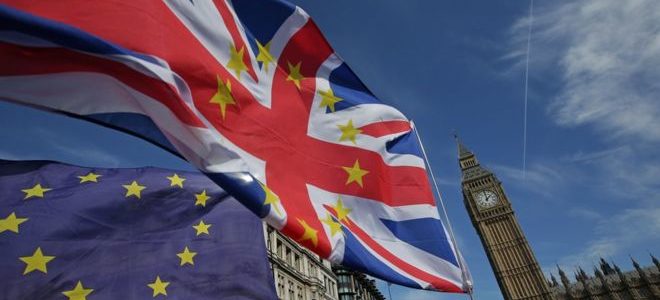
Glimmers of Hope for the UK’s Post-Brexit Future?
Debate continues to rage in the UK over the future of Britain’s post-Brexit trade.
But in the midst of gloomy warnings on the impact of Brexit on the UK economy – including this recent report – glimmers of hope have appeared. Not, however, from the Conservative government that is, supposedly, in charge.
On March 2, Prime Minister Theresa May delivered a highly anticipated speech to outline her government’s aims as the next round of talks approach. It involved a great deal of talking tough: “the hard facts” of Brexit and her “ambitious but practical” vision. But May’s most pressing interests were apparent. She sought to placate the equally fervent pro and anti-EU wings of her party, preserve her position and assure the British financial sector of continuing privilege and protection.
At Coventry University on February 26, the opposition and Labour Party leader, Jeremy Corbyn, outlined his own party’s position. “Labour will seek to remain”, he said, “in a customs union with the EU and within the single market”. If Labour get their way, he argued, the UK could continue to trade with its closest neighbours and provide input on EU regulations. But a potential future Labour government could also implement its nationalisation and state aid plans without current EU limitations. With several smaller parties and a group of rebel Conservative MPs supporting a full customs union with the EU, Labour’s plans may ultimately carry more weight than the government’s.
Labour’s plans are among the most hopeful developments in the Brexit process so far, and are strikingly similar to the course DiEM25 co-founder Yanis Varoufakis in January urged Labour MPs to take. The Labour leadership have, like Yanis, consistently rejected calls for a re-run of the UK’s June 2016 referendum – describing such a move as undemocratic.
Instead, they agree with DiEM25 that aiming for a “Norway model” of relationship with the EU – sitting outside the EU but paying for membership to the Customs Union – is the best way to achieve both a more progressive UK and a more democratic EU. Such an arrangement not only allows the UK to benefit from EU regulations and standards, but also to move beyond them — from the protection of workers’ rights to the promotion of a more responsible financial sector. It guarantees a continued relationship with the EU, which under the direction of progressive government, will help bring about a fairer and more sustainable union.
Labour’s approach, like DiEM25’s, recognizes that the challenges facing Europe are too big for any state to meet on their own. But together we can take back control of our neighbourhoods, lives and future.
Owen is a member of the DiEM25 movement, currently based in Beirut.
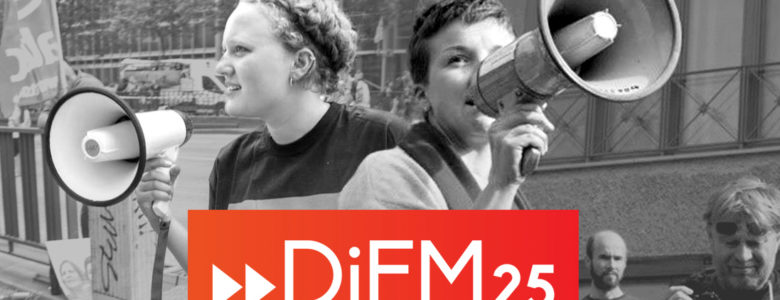
Defend Afrin – we shall overcome!
Afrin, you are more than just the horrible pictures of wounded men and women and children that make me cry.
Continua a leggere »